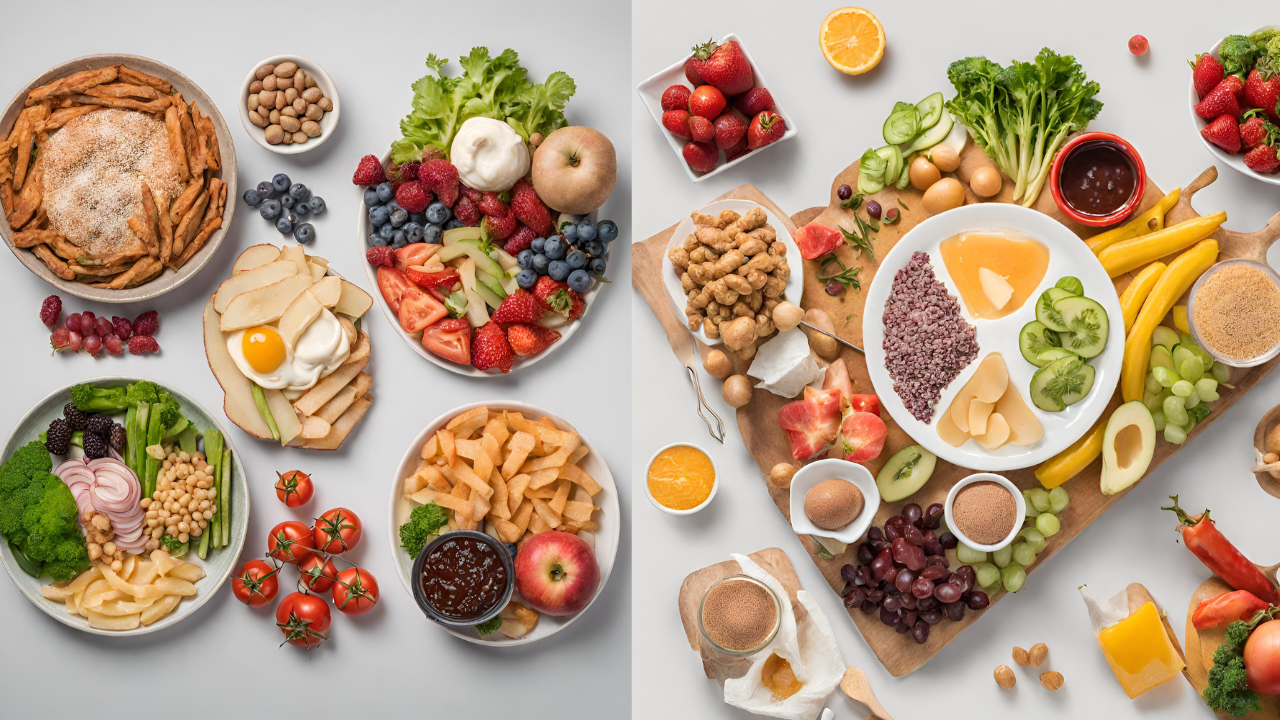Introduction
In 2024, achieving a balanced relationship with food is paramount for overall health and well-being. With the rapid advancements in technology, shifting cultural norms, and evolving nutritional science, navigating the landscape of food choices can be overwhelming. However, by adopting strategic approaches and mindful practices, individuals can cultivate a harmonious connection with food that promotes vitality and satisfaction. This article delves into comprehensive strategies and insights to foster a balanced relationship with food in the modern era.
Table of Contents
Understanding Nutritional Needs in the Digital Age
Navigating the vast array of nutritional information available online can be perplexing. In the digital age, it’s crucial to discern credible sources from misinformation to make informed decisions about dietary choices. Leveraging reliable resources such as reputable health websites, scientific journals, and registered dietitians can empower individuals to understand their unique nutritional needs and make optimal food choices.
Embracing Diversity in Dietary Patterns
In a multicultural society, embracing diversity in dietary patterns is essential for promoting inclusivity and respecting individual preferences. Whether following a vegan, vegetarian, Mediterranean, or flexitarian diet, prioritizing nutrient-dense whole foods is key. By incorporating a variety of fruits, vegetables, whole grains, lean proteins, and healthy fats, individuals can ensure they meet their nutritional requirements while enjoying flavorful and satisfying meals.

Exploring Plant-Based Alternatives
With the rising awareness of environmental sustainability and animal welfare, plant-based alternatives have gained popularity in recent years. From plant-based meats to dairy-free milk alternatives, the market offers a plethora of options to cater to diverse dietary preferences. Incorporating plant-based foods into meals not only promotes health but also reduces the ecological footprint, making it a win-win for both individuals and the planet.
The Role of Mindful Eating in Promoting Balance
In today’s fast-paced society, the practice of mindful eating offers a counterbalance to the culture of convenience and consumption. Mindful eating involves paying attention to the sensory experience of eating, including sight, smell, taste, texture, and even sound. By slowing down and savoring each bite, individuals can cultivate a deeper appreciation for food and develop a greater awareness of hunger and satiety cues.
Practicing Intuitive Eating
Intuitive eating is a holistic approach to nourishment that prioritizes listening to the body’s internal cues rather than external rules or restrictions. By tuning into hunger, fullness, and satisfaction signals, individuals can foster a more attuned relationship with food and break free from the cycle of dieting and deprivation. Embracing intuitive eating allows for greater flexibility and enjoyment in eating, leading to long-term health and happiness.
Building a Positive Food Environment
Creating a supportive food environment is crucial for fostering a positive relationship with food. This includes stocking the pantry with wholesome ingredients, preparing meals with care and attention, and cultivating mindful eating practices at the dining table. By surrounding oneself with nourishing foods and supportive social interactions, individuals can reinforce healthy habits and overcome barriers to balanced eating.
Nurturing Emotional Well-being Through Food Choices
Food is not only fuel for the body but also a source of comfort, joy, and connection. Nurturing emotional well-being through food choices involves recognizing the emotional triggers that influence eating behaviors and developing constructive coping strategies. Whether seeking solace in a bowl of soup on a rainy day or celebrating milestones with a slice of cake, food plays a significant role in shaping our emotional experiences.
Mindful Indulgence vs. Emotional Eating
Distinguishing between mindful indulgence and emotional eating is essential for maintaining balance and preventing unhealthy patterns. Mindful indulgence involves consciously choosing to enjoy a favorite treat without guilt or judgment, savoring each bite and stopping when satisfied. On the other hand, emotional eating stems from using food as a coping mechanism to numb or distract from uncomfortable emotions, often leading to overeating and feelings of remorse.

Cultivating Healthy Coping Mechanisms
To cultivate a balanced relationship with food, it’s crucial to develop healthy coping mechanisms for managing stress, boredom, and other emotional triggers. This may involve practicing relaxation techniques such as deep breathing or meditation, engaging in physical activity to release tension, or seeking support from friends, family, or mental health professionals. By addressing underlying emotional needs without relying on food, individuals can foster resilience and emotional well-being.
Conclusion
In conclusion, achieving a balanced relationship with food in 2024 requires a multifaceted approach that integrates nutritional knowledge, mindful eating practices, and emotional well-being. By embracing diversity in dietary patterns, practicing mindful eating, and nurturing emotional connections to food, individuals can cultivate a sustainable and fulfilling relationship with the nourishment they consume. By prioritizing health, happiness, and harmony, anyone can embark on a journey towards a more balanced and enriching relationship with food.
FAQs
How can I overcome cravings for unhealthy foods?
To overcome cravings for unhealthy foods, try to identify the underlying triggers, such as stress or boredom, and address them with alternative coping mechanisms like exercise or relaxation techniques. Additionally, ensure that your diet is balanced and includes plenty of nutrient-dense foods to satisfy cravings in a healthier way.
Is it possible to enjoy favorite foods while still maintaining a balanced diet?
Yes, it is possible to enjoy favorite foods while maintaining a balanced diet. The key is moderation and mindfulness. Instead of restricting yourself, allow yourself to indulge occasionally and savor each bite mindfully. Balancing indulgences with nutritious meals and regular physical activity is essential for overall health and well-being.
Incorporating more fruits and vegetables into your diet can be easy and delicious. Try adding them to smoothies, salads, stir-fries, or as snacks throughout the day. Experiment with different flavors, textures, and cooking methods to discover new favorites and make eating fruits and vegetables enjoyable.
What are some strategies for dining out without derailing my healthy eating goals?
When dining out, consider reviewing the menu beforehand and choosing options that align with your dietary preferences and goals. Look for dishes that are grilled, steamed, or baked rather than fried, and opt for smaller portions or share meals with dining companions. Additionally, don’t be afraid to ask for modifications or substitutions to make dishes healthier.
How can I practice intuitive eating in a world filled with diet culture messages?
Practicing intuitive eating in a diet culture can be challenging but rewarding. Focus on tuning into your body’s hunger and fullness cues rather than external rules or restrictions. Surround yourself with supportive resources such as books, podcasts, or online communities that promote body positivity and intuitive eating principles.
What role does mindful eating play in weight management?
Mindful eating can play a significant role in weight management by promoting a balanced and sustainable approach to eating. By paying attention to hunger and satiety cues, individuals can prevent overeating and make more mindful food choices. Additionally, mindful eating fosters a deeper appreciation for food and encourages a healthier relationship with eating and body image.
